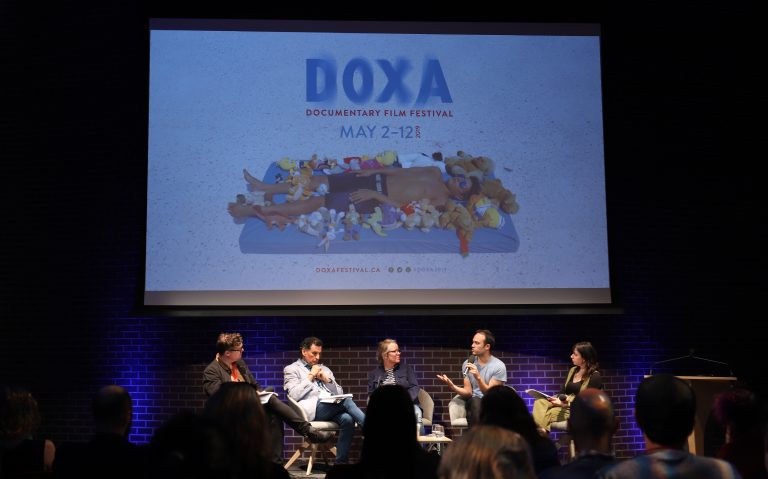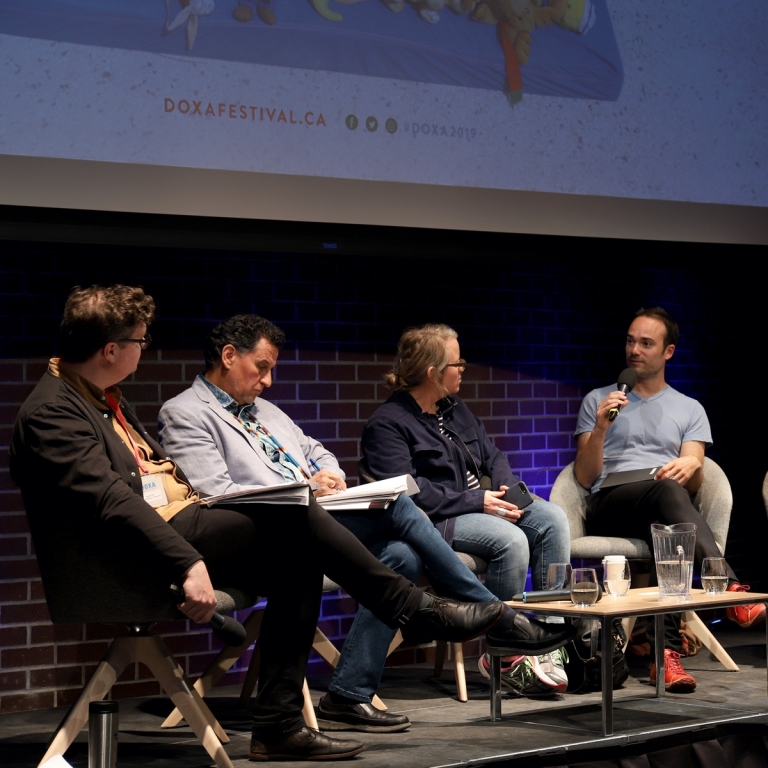Can we make documentary films without a story? We use to define documentary film as a genre that tells real stories about real people. But what if we eliminate the “narrative” component of a non-fiction movie?
A few days ago a group of filmmakers we discussed this issue during the professional days of the Doxa Documentay Film Festival in Vancouver. The starting point was the Manifesto recently published by Alexandra Juhasz and Alisa Lebow, in which they invite the filmmakers to transcend the limits of the orthodox narrative and to uncover the paradigmatic documentary: protagonist-plot-dramatic arc.
It was a pleasure to share with other outsiders of the documentary the diversity of forms and approaches that cinema can adopt. However, we must remember that this cinema that transcends story is difficult, not suitable for all audiences and presupposes an active disposition by the audience, open to the risk of incomprehension. It is a cinema that elevates us to a plane of ideas or just the opposite, to the deepest and most unconscious emotions, and that is not the way in which ordinary mortals give themselves to watch a movie.
This active attitude does not enjoy prestige, nor is it taught in any school, (nor only in film schools) and is not valued by a society that prefers to be told stories to the effort to build an experience or a discourse.
In “City of the dead” which was the film that I led to the festival, and then on the panel, there is no story, nor a main character with a goal and / or obstacle. The documentary deals with a central issue: the processes of death, which is so shocking and transcendental, so that the emotional charge resides almost entirely in the experience of the spectator before the observed. Each viewer will experience a personal and non-transferable emotion depending on their relationship with death. This agreement with the viewer is not premeditated, not part of a stylistic will, because my pretension was not to go through other narratives, but simply to be able to approach a discourse without necessarily ascribing it to a story.
The interest of documentary film, such as that of life, does not always take place on the prosaic level but, precisely, in authentic and real moments in which the magical, the absurd, the comic or the transcendent of life is revealed. We have an opportunity to escape the will to entertain and be entertained; of being led by a protagonist and by a plot to a goal achieved or not. Because the power of the real in the documentary allows us to avoid the well-known premises of entertainment, to think, as we do when we read an essay, or to feel, as in a poem.
Let’s keep open. Let’s be demanding with the movies and with ourselves. Actively participate in what documentary film can offer us, completing and giving a particular and deep meaning to what is shown and heard. Maybe this is how we discover another creative way of looking so intimate, as if we were looking at what we were living ourselves.
¿Se puede hacer cine documental sin una historia? Tendemos a definir el cine documental como un género que narra historias reales sobre personajes reales. Pero ¿qué pasa si eliminamos el componente “narración” de una película de no-ficción?

